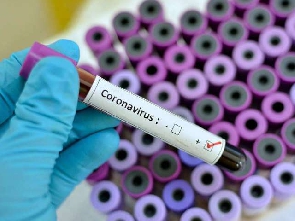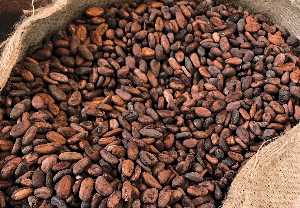The hospitals are full, the intensive care units are outstretched, the emergency care units are out of beds, the cemeteries are full and even the crematoriums are overwhelmed with the volume of corpses to deal with.
Oxygen is in shortage and the black market is booming, the vaccines are out of stock and the ambulance service is over stretched. The hardest hit is the provinces of Mumbai, Uttarakhand, Nagpur, Pune and Gujarat among others.
This is the story currently in India due to the second wave of the Coronavirus Pandemic.
Like the harmattan wind and its attendant wildfires, the Coronavirus is still ravaging with a ferocious force and it is India that is under its consuming rage now.
Not long ago, the situation in India was normal and like Ghana, was receiving some plaudits from across the globe.
With a strong pharmaceutical base, India was chosen as the centre of production of vaccines for third world and poor countries under the GAVI COVAX Facility.
However, within a twinkle of an eye all came crumbling down with India recording some of the worst cases of infections surpassing Brazil to become the second hardest hit country in the world.
From a daily infection rate of 167,000cases a day, the case count over the last one week has shot up to 300,000 with one death recorded every four minutes.
The fairy tale has ended and India has joined the league of hardest hit countries in the world with the healthcare system in near comatose.
Like the United States of America, Brazil, Mexico, South Africa and Germany, India has caved in to the second wave of the pandemic.
The reason for the sudden spike in the number of cases in spite of the massive rollout of vaccination in India is not farfetched. On April 12, 2021 hundreds of thousands of Indians threw away caution to the wind and with careless abandon, joined in the Hindi Festival.
Referred to as the Kumbh Mela or the Pitcher Festival, the Hindi Festival is one of the most sacred pilgrimages in Hinduism. It is a festival in which faithfuls of the Hindu Faith congregate in the northern city of Haridwar in Uttarakhand State and dip in the waters of the Ganges.
Underlying the festival and its rituals are the belief that, once a faithful takes a dip in the River Ganges, he or she is absolved of his or her sins and delivered from the cycle of birth and death.
The people defied all the warnings against attending or taking part in the festival and massed up in their numbers to the chagrin of the virus which decided to teach the people of India a lesson and it has been very devastating.
In the words of the World Health Organisation (WHO), the wave of COVID-19 infections in India is the result of a “perfect storm” of mass gatherings, more contagious variants and low vaccination rates.
Death toll is now pushing towards 200,000 and hospitals that do not have enough oxygen supplies and beds are turning away Coronavirus patients. Many patients have been forced to turn to the black market where the prices of life-saving medicines and oxygen cylinders have skyrocketed.
As is true in any country, the combination of relaxing of personal protective measures, mass gatherings and more contagious variants while vaccine coverage is still low can create a perfect storm.
The crisis has led several countries to ban flights from India including Canada, Belgium and the United Arab Emirates. On Tuesday, Australia also suspended all direct passenger flights from India until May 15.
Today, the Indian government has called on its armed forces to help tackle the situation, described by many as the worst healthcare crisis in modern Indian history.
What is happening in India today, is a warning to the rest of the world including Ghana that we are not out of the woods yet, despite the discovery of a vaccine to combat the Coronavirus in record time.
If there is one characteristic that the virus has demonstrated beyond doubt, then it is the fact that it is very fluid. At a point in time, Italy was the epicenter of the disease, then it shifted to France, Spain and subsequently the United Kingdom. Today, Germany has become the epicenter of the disease in Europe, despite the stringent measures they adopted in the early days of the pandemic.
Last week the Managing Director of Frontiers Health Services the company contracted by the Ghana Airport Company to conduct inbound antigen test for arriving passengers at the Kotoka International Airport issued a warning concerning the increasing number of positive COVID-19 cases among passengers arriving into the country from abroad.
From March 12 when the first two cases of the virus were recorded, the country has gone ahead to record about 92,464 confirmed cases with 779 deaths. The number of active cases currently stands at 1,584 with daily new cases of about 120.
Ghana has so far demonstrated some high level of success in the management of the pandemic; however, there is clear and present danger which must be avoided if the gains made so far is to be sustained.
It is important for the citizenry to appreciate the fact that managing the coronavirus pandemic is not a one-off event but a sustained and continuous process if the country desires to insulate itself from its devastating effect.
The Indian experience does not only serve as a warning to the rest of the world but also offers lots of useful lessons for all, especially Ghana.
There is a saying that goes like, “If the mighty wind is uprooting the mighty oak tree, then what will happen to the cassava tree when the mighty wind strikes?”
Similarly, there is a Ga adage that says “Beni aafu afuntseko, b3 afuntseko nkw3” to wit the processes leading to the burial of a hunchback, must be of concern to the living hunchback.
The moral lessons from these two statements are that, if mighty countries like the United States, the United Kingdom, Germany, Brazil and Indian have trembled under the feet of almighty Coronavirus, then what will happen to a poor country like Ghana if it begins to roar at us?
No one is completely insulated from the ravages of this pandemic until the scientific community finally comes out with a permanent solution to disease and countries that seem to look safe today must guard against a third wave jealously.
It is quiet disturbing and worrying how Ghanaians have all of a sudden, forgotten about the danger posed by the Coronavirus. With careless abandon, people continue to flout the President’s directive on religious gatherings, funerals, parties and marriages.
People continue to party, attend funerals and even church services with little or no regard for the measures outlined as protection against the spread of the virus in the country.
As already mentioned, there is a clear and present danger lurking around and Ghanaians will have to act in a responsible manner to avert what is happening in India.
We must guard against a possible third wave by adhering strictly to the WHO outlined protocols and the preventive etiquettes.
Observing social distance, washing of hands under running water and sanitising as well as wearing of nose mask must be viewed as daily routine.
As much as possible, people must avoid large gatherings and ensure that they limit their social activities and in addition to this, also avail themselves the opportunity to be vaccinated.
As the akans will say ‘Sɛ Wunim owuo hwɛ nda' to wit 'if you desire to appreciate death, then take a look at how you sleep', Ghanaians must take a cue from what is happening in India now and draw useful lessons out of it.
While things may seem to be going on well with how the government and our health professionals have managed the situation, it is important that we pinch ourselves regularly and remember that, we are not out of the woods yet when it comes to the Coronavirus Pandemic.
Opinions of Tuesday, 11 May 2021
Columnist: Prince Adjei















